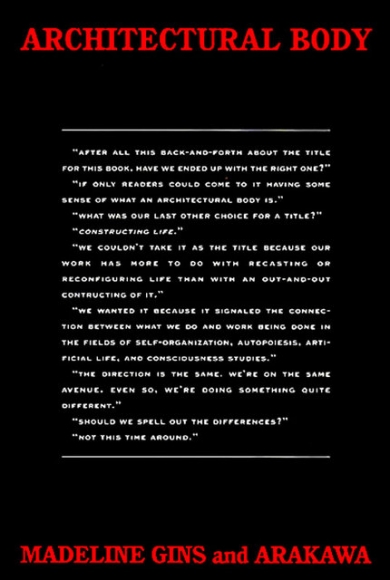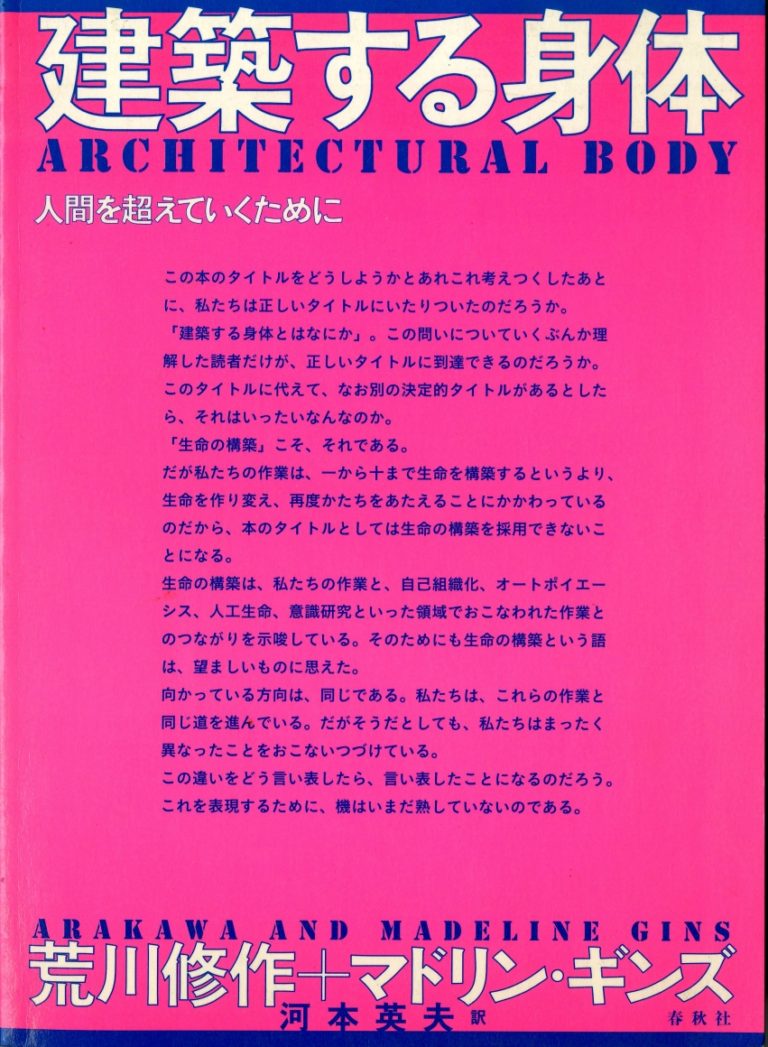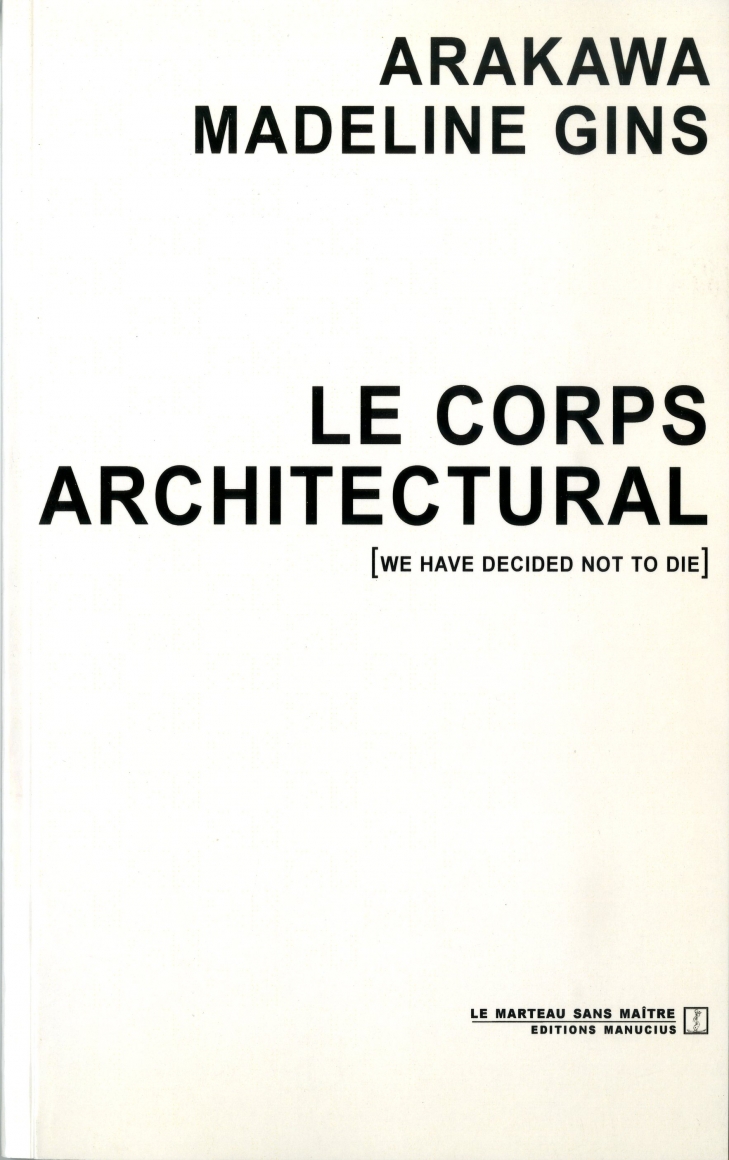


This manifesto is a verbal articulation of the authors’ visionary theory of how the human body, architecture, and creativity define and sustain one another.
“If architecture is as guilty as philosophy in neglecting the body, or even of reinforcing the notion that the body is the soul’s tomb or prison, Arakawa and Gins feel that a more complex or challenging encounter with our increasingly artificial environment – one that bends perception back on itself and casts the percipient organism as the real work of art – will reveal how the body is the only site where dreams of freedom and immortality may become palpable. Their Frankensteinian will to outmaneuver death (in a project dubbed Reversible Destiny) may make some uneasy, but in an age of murderousness and defeatism their work enjoins no less than a sublime respect for life. Under the aegis of poetry, their latest book is the fruit of decades of research into the architectural poetics of percep- tion and is acompelling argument for the reality of a phantom-like species named the architectural body (“architectural surround + body proper”). Assuming that the world rising up around us is formative of the subject, this body would be a changeable shell, rather a matrix, of “landing-site” stimuli – whether tactile, visual, aural, kinesthetic, proprioceptive, or otherwise. Theirs is an ecology of sensation(s) instead of a chaotic heap of perceptions. Having already proposed numerous experimental sites (assembled from multi-labyrinths and sloping terrains designed to unsettle habitual sensorimotor behavior and push the body up against itself), this book launches their hypothesis of a “procedural architecture,” one that will not only render the architectural body traceable, but ultimately reconfigurable.”
—Joel Robinson, Ouvrages Théoriques Essays, Parachute 110
- English edition:
Hardback: 108 pages
Paperback: 106 pages
Publisher: University Alabama Press, 2002
ISBN 0-8173-1168-8 (Hardback)
ISBN: 978-0817311698 (Paperback) - Japanese edition:
Paperback:186 pages
Publisher: Shunjūsha, 2004
ISBN: 4-393-95503-X - French edition:
Paperback: 140 pages
Publisher: Editions Manucius, Houilles, 2005
ISBN: 2-84578-049-4
